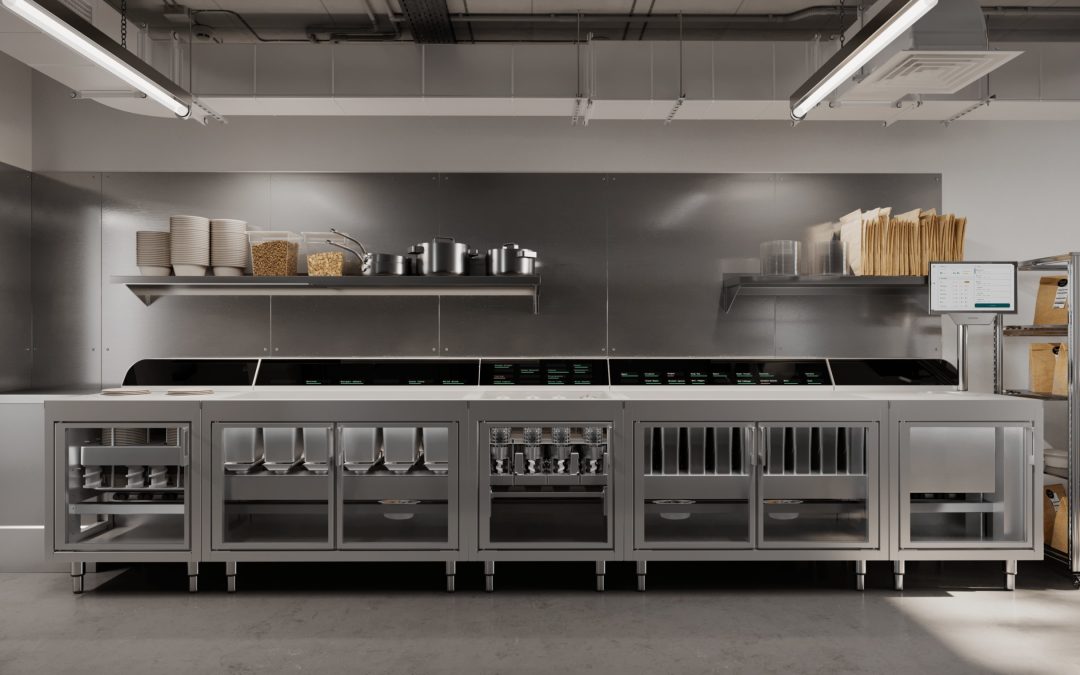Chipotle will soon begin testing an automated makeline via tech company Hyphen.
The San Jose, California-based startup automates the assembly of meals. Its first product, “The Makeline” utilizes robotics and a customized operating system to give busy kitchens an efficient way to complete online orders.
Hyphen was one of Chipotle’s first investments in its Cultivate Next Fund last year—a $50 million dollar fund targeting new investments to accelerate growth.
Robots lend a hand
How it works: There is the usual assembly on top of the counter, where staff scoop bowls and roll burritos, and then there’s below the counter, where the automated makeline assembles digital orders via a moving conveyer belt. Hyphen claims the system can make over 350 meals per hour while improving accuracy.
Chipotle CEO Brian Niccol shared in the fast casual’s recent Q4FY 2022 earnings call that they expect to have the prototype installed in the Chipotle Cultivate Center in Irvine, California, in the first half of this year.
“This would allow our restaurant teams to focus more on our in-restaurant guests on the frontline, further improving throughput,” said Niccol.
Hyphen is just one of many investments Chipotle has made to grow its digital business, which Nicoll said brings in over $3 billion in revenue and represents 30 percent of sales.
Last year the chain began testing a robotic frying arm through Miso Robotics, called “Chippy” that makes tortilla chips. Chipotle is also currently testing a new grill to speed up and improve the cooking process for chicken and steak.
In addition, in January, the chain rolled out location-based technology to enhance its app functionality, giving users readiness messaging, wrong pickup location detection and reminders to scan the Chipotle Rewards QR code at checkout.
While Chipotle continues to focus on its digital growth, the company has seen a drop-off in percentage of online orders—down 41.9 percent in Q1 to 37 percent in Q4.
Chipotle said in the earnings call that this decline could be due to the 15 percent drop in delivery transactions and the higher costs associated with delivery. The company believes its digital sales will eventually settle in the high 30 percent range.


